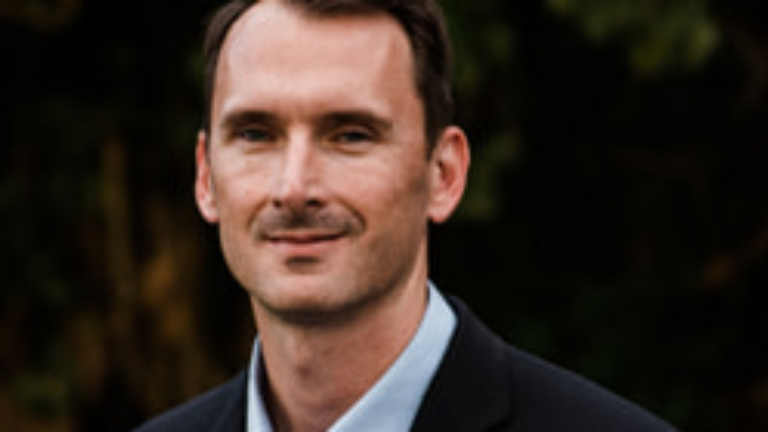Blog
Published: October 12, 2022
Insights from an Expert: Building Automation and Healthcare with Michael Leach
Mike Leach leads building automation sales for the Florida Region. He has been with Trane since 2009 in progressive positions as Sales Engineer, Controls Operations Manager, Systems Sales Manager, and his current role. Mike is based out of the Tampa office with his wife and two daughters. He is a licensed professional engineer and has a bachelor’s degree in engineering and a Master of Business Administration, both from the University of Florida.
Quick Facts
- Industry
- Healthcare
- Topics
- Cost-Saving • Large Buildings

About the author
Michael Leach, Regional Controls Sales Manager – Florida
Mike Leach leads building automation sales for the Florida Region. He has been with Trane since 2009 in progressive positions as Sales Engineer, Controls Operations Manager, Systems Sales Manager, and his current role. Mike is based out of the Tampa office with his wife and two daughters. He is a licensed professional engineer and has a bachelor’s degree in engineering and a Master of Business Administration, both from the University of Florida.
Q. What are the top challenges you are hearing from your healthcare customers?
A. Facility management in the healthcare setting is becoming more complex. Indoor environmental quality can affect patient care—and while that has always been the case in surgical suites, there are now greater expectations and needs in patient rooms, waiting rooms, and other spaces.
Just like in other facility types, as complexity and demands on facility staff increase, budget and resource constraints continue to tighten for hospitals and healthcare facilities. Maintenance and facility teams are being challenged to do more with less while creating ideal indoor environments for each part of the facility—from patient rooms to surgical settings.
Q. How does building automation help address these challenges?
A. Building automation and management systems can help to optimize the cost, reliability, and outcomes of the indoor environmental quality of a space. A solution like Tracer® Ensemble® can display multiple rooms or buildings, with attributes like temperature and humidity, while prioritizing alarms so facility staff can easily identify where they need to take action. A solution like Tracer Concierge® gives other staff, like nurses, the ability to adjust temperature in the spaces they are responsible for with minimal to no training—which can lead to less calls for facility staff. The insights Trane can gain from the building automation system’s data can alert facility staff to any issues before they begin to affect patients and healthcare providers.
Q. Why is cybersecurity so important in healthcare settings? Does this affect the building automation system?
A. Any organization should be thinking about cybersecurity—but when it comes to healthcare, laws like HIPAA draw extra attention to anything connected in the building that produces data. Data flowing from building automation systems include temperatures, flows, etc.—nothing that is related or tied to personal identifiable data that is regulated by HIPAA. We call this data from the building automation system operational data. Systems like building automation can be isolated from personal data through cybersecurity best practices.
Q. What are some common practices to manage healthcare facilities with cybersecurity in mind?
A. The best course of action is to engage your IT teams early—connect your service provider directly to your IT and cyber security departments. Your service provider can work with the IT department to answer questions and comply with requirements around network architecture and cybersecurity. For example, the Tracer Ensemble building management system is a software that can be hosted remotely in a cloud instance or on your site with cybersecurity in mind either way.
Our best practices guide goes over key areas of cybersecurity in any application, including isolation, secure access, operation and maintenance.
Q. What are some trends you are seeing in healthcare with building automation?
A. We are starting to see connected smart patient rooms in hospitals. Previously separate systems, they are now being integrated to improve the patient the patient experience. Building automation systems will be a core component of this trend and Trane is ready.
